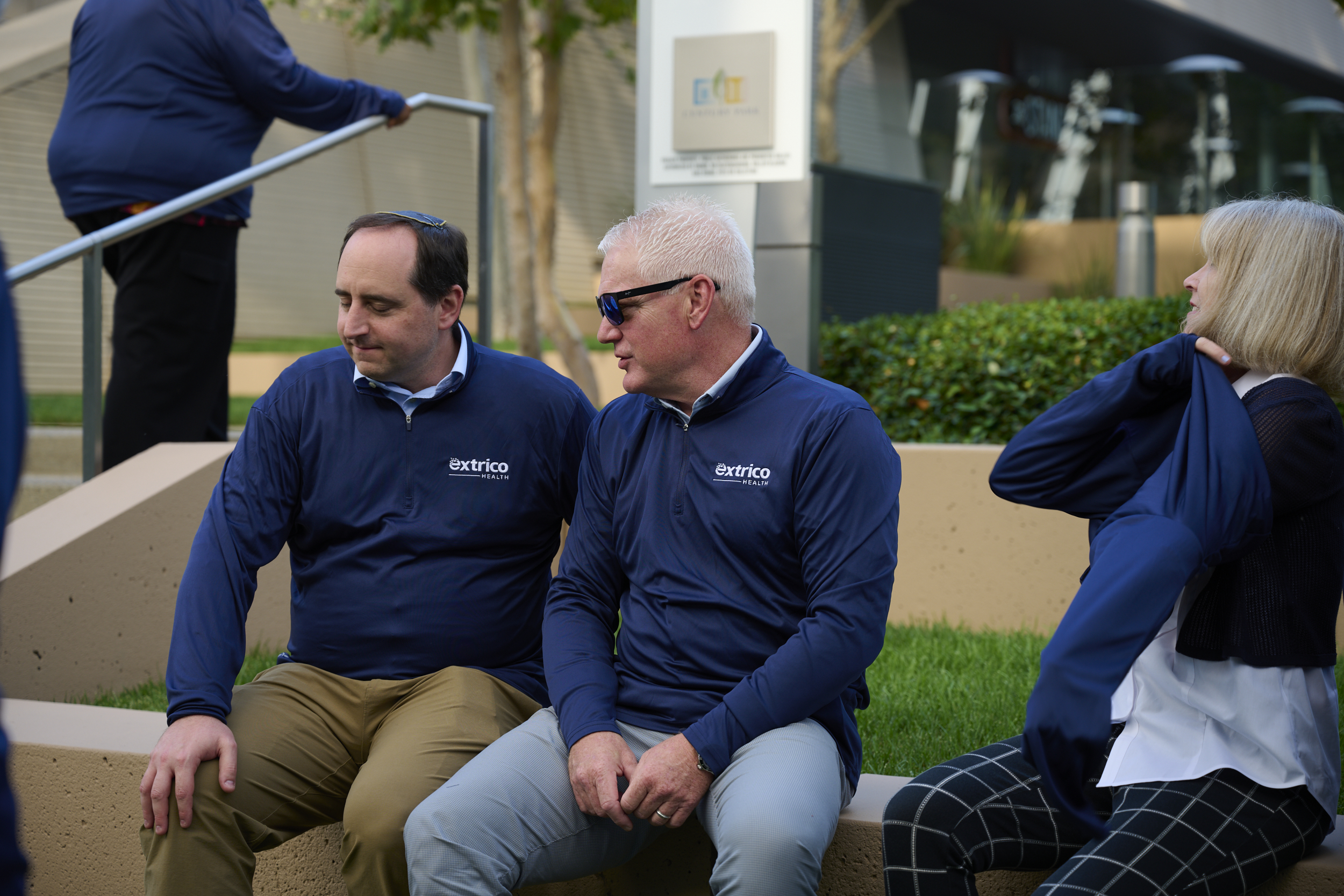


Remote by Design: Building a Remote Company That Works
Picture this: I live in LA, practice medicine in New York, and founded a remote AI company with team members scattered across the US. Confused? You're not alone.
When people hear my setup, I watch their faces go through confusion to skepticism to curiosity.
"Wait, how does that actually work?"
The short answer? Better than you'd think.
When I was founding Extrico in the height of Covid it certainly didn’t seem to make sense to use precious capital on office space. Now, 6 years later we have made the intentional choice to be a remote first company, but that doesn’t mean there aren’t tradeoffs. The transition to remote work that was accelerated by Covid has real potential benefits for both employees and employers, but it also has realistic drawbacks. The questions everyone (employers and employees) needs to figure out in this new world is not will be remote or in person, but how to maximize the benefits and minimize the costs of the arrangements they make.
The Employee Perspective
Remote work offers significant advantages for the employee. First and foremost, it creates more time. Simply eliminating the daily commute often saves hours each week that would otherwise be spent in traffic or on public transit.
Flexibility is a major perk, whether it’s walking the dog, preparing dinner, carpooling kids, squeezing in a workout, or simply enjoying a hobby, remote work gives employees greater control over their schedules. This autonomy can improve overall work-life balance and well-being.
But it's not all easy. Some struggle with productivity at home, especially without a proper workspace or with distractions like roommates, kids, or pets. Others miss the structure and social energy of an office. Others (especially junior employees) miss out on the mentorship opportunities available when everyone is in the same place. Gone are the casual chats in the kitchen or spontaneous brainstorms that come from being in the same room, without in-person interaction, Loneliness can creep in if intentional effort isn’t made to stay connected and the line between work and personal life can blur, making it tempting to work late or check messages off-hours especially when working across time zones.
The Company Perspective
From a business standpoint the single biggest benefit (and the primary reason Extrico is a remote first company) is that remote work opens access to a wider pool of talent. Companies are no longer limited by geography and can hire the best person for the job regardless of location.
But managing a remote workforce comes with its own set of hurdles. Communication is much less fluid when you’re not all in the same place. Quick questions via Slack messages are not the same as popping into someone’s office, and a lot of nuance gets lost when you can’t see someone’s fully body language. Building team alignment takes more deliberate effort and it is easy to have relationships fray and communication fall apart.
Building a strong culture and fostering interpersonal relationships remotely is tough. It’s harder to establish camaraderie and trust without the benefit of face-to-face interaction and it is easy for people to “check out” during the day.
The Extrico Playbook: How We Cracked the Code
Make Home Feel Like the Best Office They've Ever Had: We provide a home office stipend because working from your kitchen table is a recipe for back pain and productivity disasters. A proper setup isn't just nice-to-have, it's the foundation of everything else working.
Hiring for Character AND Credentials: We've learned to hire for remote superpowers: self-direction, communication skills, and emotional intelligence. Often, this means people who are further along in their careers and have proven they can manage themselves. We're looking for the kind of person who doesn't need someone looking over their shoulder to do great work and naturally wants to chart their own direction.
Tool Stack That Actually Works: After some trial and error (RIP, SharePoint experiment), we landed on Slack for everything communication, Dropbox for file sharing that’s easy among many other tools. We are constantly reevaluating our collaboration tools to optimize them for our workforce.
The non-negotiables: Be responsive during core hours, show up to meetings with your camera on (yes, even at 8 AM), and clear and honest communication. There is very little tolerance for not “showing up” this way.
Intentional Human Connection: Most remote companies think digital-first means digital-only. We bring teams together at least quarterly and have company-wide gatherings twice a year. Just last week, we spent three days together in LA, and the energy was electric. These aren't just team-building exercises; they're relationship-building investments. We’re also exploring ways to facilitate shorter day long meet ups when necessary. In short a good chunk of the savings on rent end up going to travel.
Final Thoughts
Six years into this experiment, I'm convinced that the companies thriving in the next decade will be the ones that master remote work, not because it's trendy, but because it unlocks human potential in ways we're just beginning to understand.
The question isn't whether remote work is "better" than office work. The question is: how do you build a company culture so strong that it transcends physical space?
Built on a shared set of values, at Extrico, we're betting that trust, clear communication, and intentional connection can happen anywhere. So far, the data looks pretty good.




Ready to transform your data

.webp)



.svg)